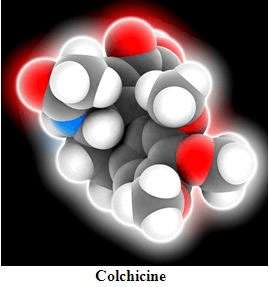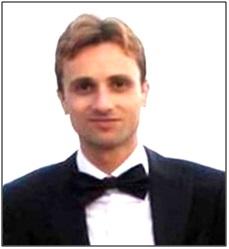USE OF COLCHICINE TO COUNTERACT THE STRONG HYPERINFLAMMATORY STATE INDUCED BY SARS-COV-2
Keywords:
Colchicine, coronavirus, cytokine, interleukin, pneumonia, SARS-CoV-2Abstract
Research in present time has been focusing on finding a specific SARS-CoV-2 vaccine or antiviral, which will probably be the therapeutic goal in the fight against the virus. In the meantime, scientific evidence shows that it is possible to have effective clinical improvements of infected patients in reducing the strong hyperinflammatory state. The SARS-CoV-2 infection is divided into three stages. The most serious phase is the third one where the immune system overdrives and launches an intense attack against itself. This is called "cytokine storm" and leads to tissue damage and often to death. Stopping the cytokine storm early is definitely an effective move; since March several studies have been evaluating how this can be an important pharmacological aspect. Blocking IL-6 or IL-1 inhibitors, for example, is already known to have wide efficacy, but they are not alone in being able to block the cascade of cytokines. This is a clinical pharmacology article and demonstrates how the use of colchicine, monotherapy or in combination in all three phases of SARS-CoV-2, controls inflammation and prevents patient death. Colchicine is safe and effective for treating SARS-CoV-2 patients in preventing inflammation and lung collapse and is certainly useful as an added remedy for other drugs. The advantage is certainly its safety profile much higher than that provided by other drugs, such as corticosteroids and immunosuppressive drugs. Note is the story of hydroxychloroquine: use has been banned due to its high toxicity.

Peer Review History:
Received 3 April 2020; Revised 9 May; Accepted 20 June; Available online 15 July 2020
Academic Editor: Dr. Muhammad Zahid Iqbal , AIMST University, Malaysia, drmmziqbal@gmail.com
, AIMST University, Malaysia, drmmziqbal@gmail.com
Reviewer(s) detail:
Dr. Jennifer Audu-Peter , University of Jos, Nigeria, drambia@yahoo.com
, University of Jos, Nigeria, drambia@yahoo.com
Dr. Robert Tungadi , State University of Gorontalo, Indonesia, rtungadi@yahoo.com
, State University of Gorontalo, Indonesia, rtungadi@yahoo.com
Downloads

Published
How to Cite
Issue
Section

This work is licensed under a Creative Commons Attribution-NonCommercial 4.0 International License.









 .
.